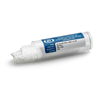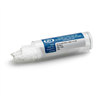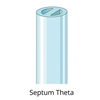

Glass Capillaries
WPI offers a wide spectrum of high-quality glass capillaries. We take pride in our ability to ship your capillary glass order within 48 hours. If you need a special glass capillary tubes that does not appear on our website, please call us. We will make every effort to provide it for you. A glass capillary is used when pulling micropipettes or making microelectrodes. We also offer a full line of micropipette pullers.
Glass Compositions
We offer capillary glass tubing in three different compositions; quartz, borosilicate and aluminosilicate. Each composition has its own unique properties and the selection will be determined by your application and your puller’s capabilities.
Fire Polishing
Fire polished glass capillaries are easier to insert into microelectrode holders without damaging the gasket. More importantly, fire-polished glass won’t scratch the chloridized wire used in a recording electrode. Fire-polishing does not affect the glass’s mechanical or electrical properties. All aluminosilicate capillary glass offered by WPI have fire-polished ends.
Filaments for Quick Filling
Single barrel standard capillaries are offered either with or without inner filaments in a variety of lengths and diameters. The filament is a thin glass rod annealed to the inner wall of the glass capillary. The filament improves the capillary action to avoid air bubble formation inside the capillary. The filament acts like a wick to draw liquid into the microelectrode or micropipette.
Capillary glass with a filament is recommended when you are pulling microelectrodes (electrophysiology) or micropipettes (microinjection) for applications that require tips smaller than 3 µm. Back filling such a pipette is nearly impossible without the filament. Without the filament, you risk the introduction of air bubbles into the pipette.
Configurations of Glass Capillaries
Standard glass is available with or without a filament fused to the inner wall. Filaments aid in the capillary action for the filling of electrodes.
Multi-barrel capillary glass is available in two, three, five and seven-barrel configurations.
A complete range of single barrel thin-wall glass is sold for finer tips and shorter tapers.
A variety of special configurations like septum theta and piggyback glass capillaries are also available.
WPI capillary tubing is available in a broad range of wall thickness which allows you to select the size necessary for your application. The ratios of inside diameter to outside diameter typically run between 0.5mm and 0.75mm with the lower value being referred to as thick wall tubing and the top of the range as thin wall tubing. All other factors being equal, the thicker wall capillaries produce pipettes with longer tapers and smaller tips which make it more suitable for intracellular microelectrodes. These thicker wall pipettes tend to reduce the noise contributions due to capacitance which makes them more suitable for patch clamp pipettes. Thinner wall tubing allows for larger pore openings which make it ideal for microinjection needles and low resistance microelectrodes.

Single Barrel Borosilicate Glass Capillaries
WPI offer a wide range of sizes with options for fire polished and filaments. Borosi...

Aluminosilicate Glass
Aluminosilicate capillary tubes are harder than borosilicate making it more suitable...

Multi-Barrel Glass Capillaries
Multi-barrel configurations are designed especially for microiontophoresis. Because ...

Quartz Glass
Quartz glass has great electrical and mechanical properties. It offers the lowest di...
GR100-4
- 1 mm Glass rods ideal for making tools, probes and tips
- 4''/100mm long
- Numerical Aperature: 1
- OD/ID Tolerance: ±0.1 mm
- Length Tolerance: ±1 mm
- Vial of 500
- Recommended to use with Glass Handling Forceps (77020)
GR100-6
- 1 mm Glass rods ideal for making tools, probes and tips
- 6"/150mm long
- Numerical Aperature: 1
- OD/ID Tolerance: ±0.1 mm
- Length Tolerance: ±1 mm
- Vial of 500
- Recommended to use with Glass Handling Forceps (77020)










Request
Catalogue
Chat
Print